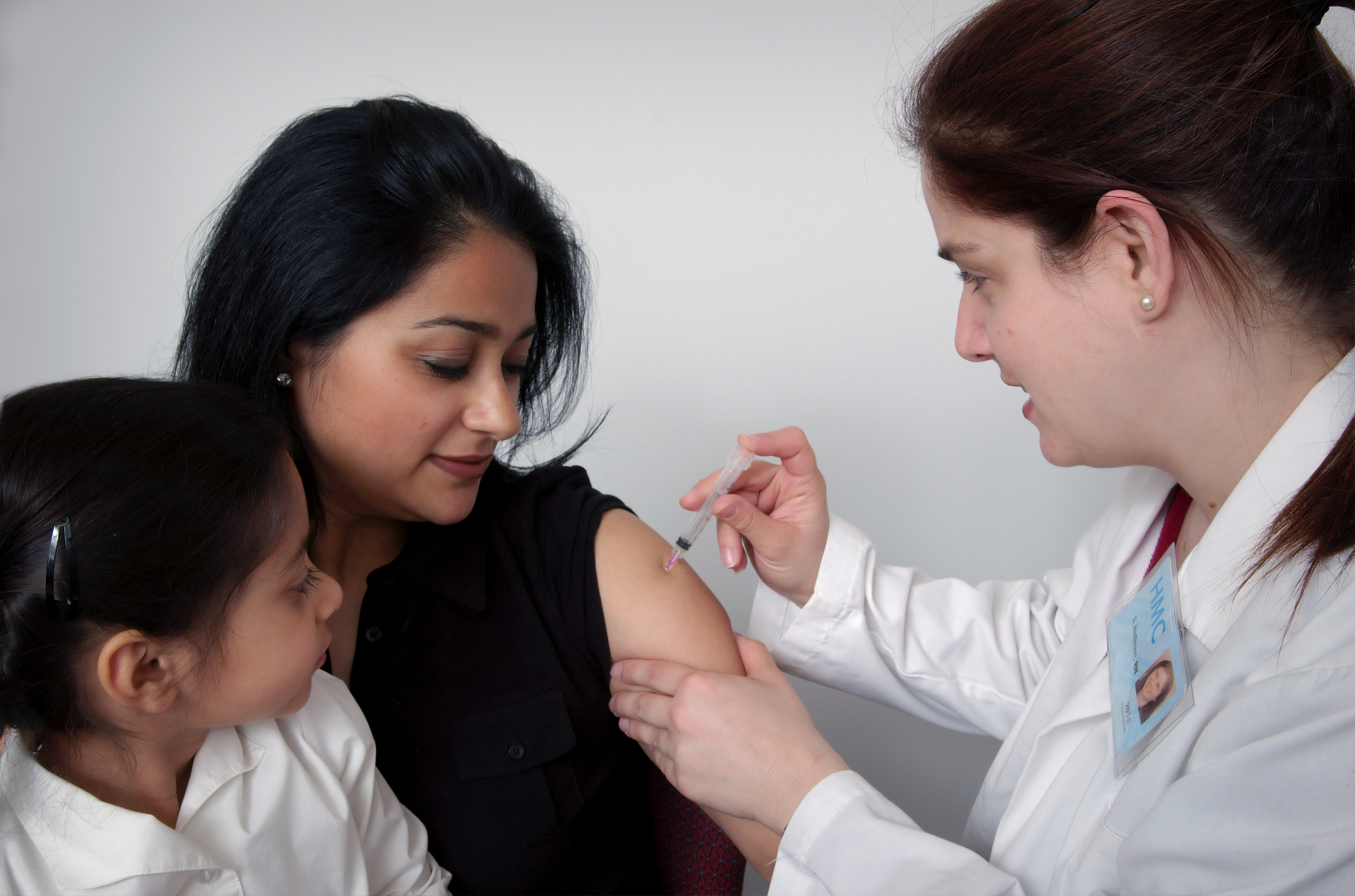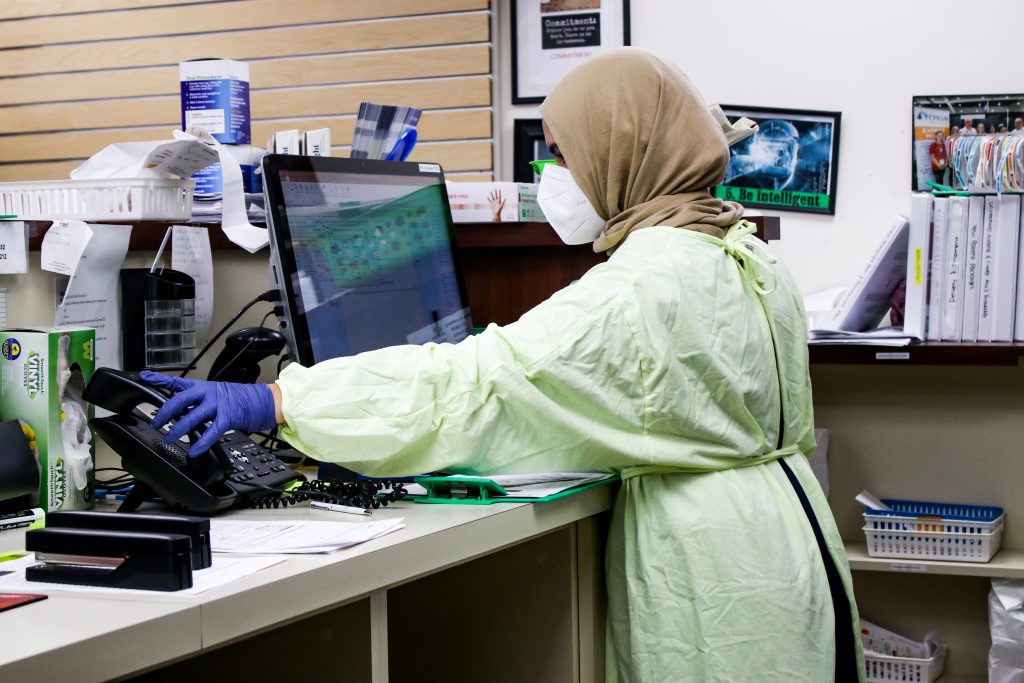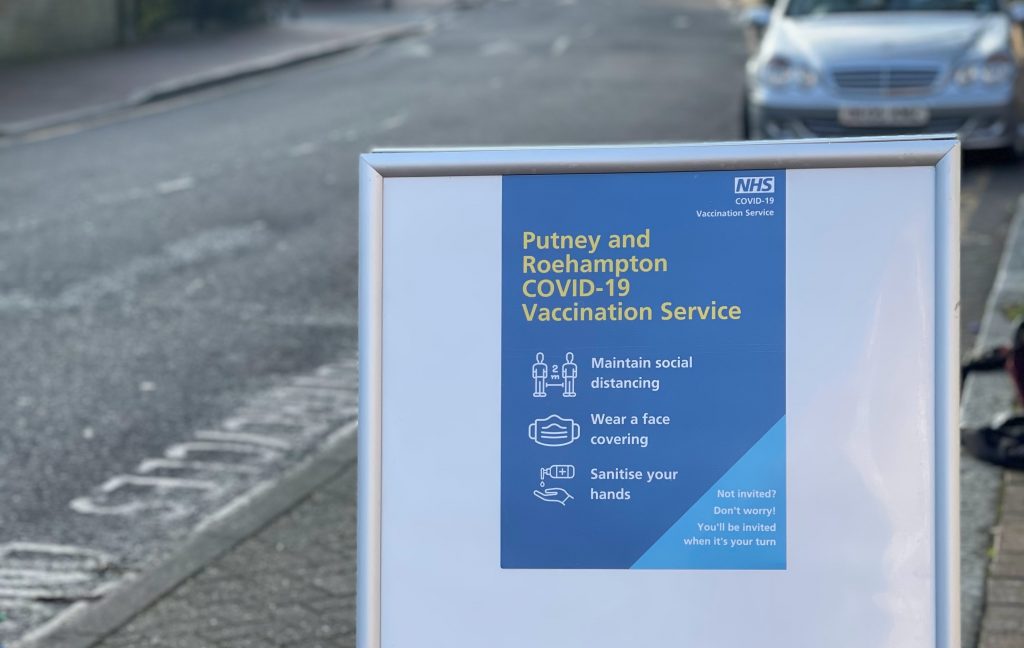Rapid scientific progress can contribute to the well-being of humankind, and never more so than now.“Life-saving vaccines have been developed,” says Dr Tedros Adhanom Ghebreyesus, The Director General of the World Health Organisation. “What happens next is up to us.” However, it’s also up to the UK Government.
In England, the NHS is currently offering the COVID-19 vaccine to people most at risk from coronavirus, with all adults promised their first jab by September. It’s vital for all of us to remember that the rollout is a human rights issue – and the UK Government has human rights commitments to ensure scientific advancements benefit everyone.
Article 27 of the Universal Declaration of Human Rights says everyone has the right to participate freely in the cultural life of the community, to share scientific advances and their benefits. Moreover, there are legally binding human rights obligations on the UK Government to ensure the creation and subsequent deployment of the vaccine is accessible to all people, without discrimination.
In particular, Article 15 of the International Covenant on Economic, Social and Cultural Rights sets out the UK Government’s duty to ensure that people “enjoy the benefits of scientific progress and its applications” and that “necessary steps are taken for the development and distribution of science and culture”.
It also adds that benefits must be “recognised in the encouragement and development of international contacts and co-operation in the scientific and cultural fields”. In short, the vaccine rollout is intrinsically about human rights – but what should we be watching out for?
There Must Be Equal Access To The Vaccines

Vaccines need to be offered to everyone. (Image Credit: CDC/Unsplash)
Whether people can access vaccines has direct consequences for their enjoyment of economic, social and cultural rights. All people have a right to participate in and enjoy the benefits of scientific progress, such as vaccines. Notably, under international human rights law, there are immediate duties on the UK Government to eliminate all forms of discrimination against individuals and groups in their enjoyment of economic, social and cultural rights, which include the right to health.
For example, in England, concerns have been raised about the physical accessibility of vaccination sites. Just Fair, a charity which monitors and advocates for economic, social and cultural rights, has heard some older people are finding travel to receive the vaccine difficult, where they are not mobile or are not in a support bubble with someone who can transport them.
Read More: How Decades Of Health Inequality Have Made Ethnic Communities Hesitant To Take Covid Vaccines
Measures must be adopted by the UK Government to eliminate conditions and challenge attitudes that perpetuate inequality and discrimination so that everyone can enjoy their right to vaccination without discrimination, including on the grounds of religion, national origin, sex, sexual orientation and gender identity, race and ethnic identity, disability, poverty and any other relevant status.
Information About Risks And Benefits Should Be Accessible To All

A man looks at his laptop (Image Credit: Unsplash)
But, before we can even talk about receiving the vaccine, we need to think about the messaging surrounding it. To be able to receive the vaccine, health messaging must be accessible.
The UK Government has international human rights obligations to engage in cultural means of education and communication, with the aim of encouraging the widest participation and benefit from the vaccine. This is of particular importance for those populations that have traditionally been excluded from scientific progress.
For example, this means minimising obstacles for specific groups of people who are digitally excluded. To fulfil its duties, the Government must provide inclusive, assistive technologies and alternative accessible processes to ensure everyone can receive information about the vaccines. This includes information in Easy Read formats, braille, British Sign Language, hard copy and more.
Read More: How Deaf People Are Fighting To Be Heard Amid COVID-19 And Beyond
According to international human rights experts, information about vaccines must also be reliable. Data should be provided in the public domain which explains governmental decisions around the vaccine and priority vaccination groups. An example of the UK Government’s failure to take appropriate measures would be its inaction to prevent the sharing of misinformation intended to erode people’s understanding and respect for science and scientific research.
Specialist vaccine question and answer sessions should be available for specific communities, especially those who might not be registered with a GP, such as Gypsies and Travellers who may not have a fixed address.
There Must Be Open Opportunity To Participate In The Creation And Dissemination Of Scientific Process

A pharmacist wearing PPE at their workplace. (Image Credit: Unsplash)
It’s also vital that the Government removes discriminatory barriers that prevent marginalised people from participation in scientific advancement. As well as the human right to benefit from scientific progress, in this case the vaccine, we also have the right to participate in its creation and decisions concerning its direction.
The UK Government should not stop everyday citizens from participating in scientific activities, but should actively facilitate this. In particular, this calls into question the ban on asylum seekers’ right to work, which prohibits many trained medical and care professionals from participating in the roll out of vaccines.
While the UK battles one of its biggest health crises ever and rolls out a huge vaccination programme, trained medical and care professionals who want to help are not allowed to.
Refugee Action
In a statement earlier this month, Refugee Action said: “While the UK battles one of its biggest health crises ever and rolls out a huge vaccination programme, trained medical and care professionals who want to help are not allowed to. Because the Government bans people seeking asylum from working.”
Only in exceptional circumstances is this lawful. Barriers to enjoyment of rights are only permitted if they are inevitable, necessary, proportionate, mitigate inequalities that can grow in times of crisis, and ensure that the rights of disadvantaged and marginalised individuals are protected.
We Must Ensure Universal Access To Treatments As Global Public Goods

A sign outside a Vaccination Hub in Putney, London. (Image Credit: Unsplash)
More than 4 million people have received their first dose of the COVID-19 vaccine in the UK. But the pandemic does not respect borders. The UK Government has binding obligations to take steps, through international assistance and cooperation, using its maximum available resources, to ensure enjoyment of the benefits of the COVID-19 vaccine around the world.
Private scientific research is connected with the development of international and national intellectual property legal regimes. This can have adverse impacts on people’s right to participate in and benefit from the vaccine progress, distribution and receipt.
More than 39 million doses of vaccine have now been administered in at least 49 higher-income countries. Just 25 doses have been given in one lowest-income country. Not 25 million, not 25 thousand, just 25. The world is on the brink of a catastrophic moral failure – and the price of this failure will be paid with lives and livelihoods in the world’s poorest countries.
WHO Director-General, Dr Tedros Adhanom Ghebreyesus
As the UN Committee on Economic, Social and Cultural Rights say, “pandemics are a crucial example of the need for scientific international cooperation to face transnational threats”. To comply with international human rights standards, and avoid devastating consequences, the UK Government must help ensure enjoyment of the right to universal and equitable benefits of COVID-19 vaccines everywhere.
The views expressed in this article are those of the author and do not necessarily reflect the views of EachOther.


